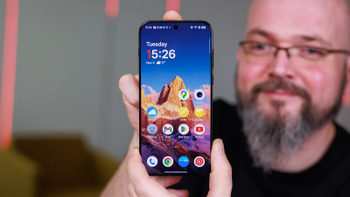Court stops Utah’s social media age verification law, citing free speech issues

A federal judge has halted Utah’s efforts to enforce a law aimed at protecting youth mental health by requiring age verification for social media users and limiting minors' access.
Chief US District Judge Robert Shelby granted a preliminary injunction, determining that the tech industry group NetChoice is likely to prove that the law infringes on the First Amendment by overstepping free speech protections for social media companies.
This ruling adds to a trend of courts blocking state-level attempts to regulate online platforms in response to increasing concerns about the effects of social media on children’s mental health.
Similar opinions were also shared by the US Surgeon General Vivek Murthy back in June 2024, when he advocated for adding warning labels to social media apps, highlighting their potential harm to young people, especially adolescents.
In January, the CEOs of TikTok, Snap, and Meta Platforms (which owns Facebook and Instagram), along with representatives from social media platform X and messaging app Discord, were heavily scrutinized by US senators during a hearing focused on online child safety.
Republican Senator Lindsey Graham then sharply criticized the executives, accusing them of having "blood on your hands" (oh, the irony, given the person talking) for not adequately safeguarding young users from sexual predators.
Back to the news: according to Shelby, the court "recognizes" the state's "earnest desire" to protect young people from the "novel challenges associated with social media use".
However, he continued, "even well-intentioned legislation that regulates speech based on content must satisfy a tremendously high level of constitutional scrutiny" – and, apparently, that Utah's law did not.
Utah Attorney General Sean Reyes, a Republican, stated that his office was reviewing the court's decision to determine the next course of action. He emphasized the state's continued commitment to shielding Utah's youth from the harmful effects of social media.
Republican Governor Spencer Cox had signed the Utah Minor Protection in Social Media Act into law in March, following the repeal of a previous social media regulation law that had also been challenged by NetChoice. The new law, scheduled to take effect on October 1, required social media platforms to implement age verification systems to identify minors and enforce special privacy settings for children's accounts.
Judge Shelby found NetChoice’s argument compelling, noting that the law selectively targeted social media platforms by imposing content-based limitations on how they could design and operate, while leaving other types of websites unaffected.
Chris Marchese, director of NetChoice's litigation center, remarked that the ruling underscored the fundamental flaws in the law and expressed optimism about permanently overturning it and similar legislation across the country. NetChoice has successfully challenged similar laws in Arkansas, California, Mississippi, Ohio, and Texas.
Chief US District Judge Robert Shelby granted a preliminary injunction, determining that the tech industry group NetChoice is likely to prove that the law infringes on the First Amendment by overstepping free speech protections for social media companies.
Similar opinions were also shared by the US Surgeon General Vivek Murthy back in June 2024, when he advocated for adding warning labels to social media apps, highlighting their potential harm to young people, especially adolescents.
Republican Senator Lindsey Graham then sharply criticized the executives, accusing them of having "blood on your hands" (oh, the irony, given the person talking) for not adequately safeguarding young users from sexual predators.
Back to the news: according to Shelby, the court "recognizes" the state's "earnest desire" to protect young people from the "novel challenges associated with social media use".
Utah Attorney General Sean Reyes, a Republican, stated that his office was reviewing the court's decision to determine the next course of action. He emphasized the state's continued commitment to shielding Utah's youth from the harmful effects of social media.
Republican Governor Spencer Cox had signed the Utah Minor Protection in Social Media Act into law in March, following the repeal of a previous social media regulation law that had also been challenged by NetChoice. The new law, scheduled to take effect on October 1, required social media platforms to implement age verification systems to identify minors and enforce special privacy settings for children's accounts.
NetChoice, which represents major tech companies such as Meta's Facebook and Instagram, Alphabet's YouTube, Snap Inc.'s Snapchat, and Elon Musk's X, argued that the law placed unwarranted, content-based restrictions on the platforms' speech.
Judge Shelby found NetChoice’s argument compelling, noting that the law selectively targeted social media platforms by imposing content-based limitations on how they could design and operate, while leaving other types of websites unaffected.
Chris Marchese, director of NetChoice's litigation center, remarked that the ruling underscored the fundamental flaws in the law and expressed optimism about permanently overturning it and similar legislation across the country. NetChoice has successfully challenged similar laws in Arkansas, California, Mississippi, Ohio, and Texas.
Follow us on Google News










![A new Android bug is making it impossible to install new apps. Are you affected? [UPDATE]](https://m-cdn.phonearena.com/images/article/176703-wide-two_350/A-new-Android-bug-is-making-it-impossible-to-install-new-apps.-Are-you-affected-UPDATE.webp)

Things that are NOT allowed:
To help keep our community safe and free from spam, we apply temporary limits to newly created accounts: